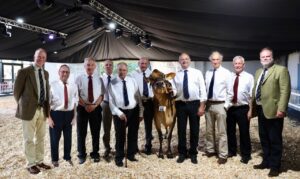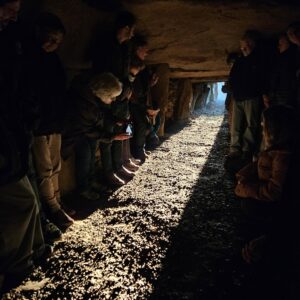Comment from ALASDAIR CROSBY
THE Prince of Wales has always something interesting to say, whether one agrees with him or otherwise. I have always found his comments on various aspects of our national life sensible and very often, thought-provoking and inspirational.
Last month he wrote a piece for a country life magazine – one that is a bit more widely known and widely distributed than RURAL (but give us time). If you have not come upon his interview yet, I do commend it to you. It can be found at https://www.countrylife.co.uk/news/the-prince-of-wales-this-is-a-moment-in-history-214533.
His support for British farmers and farming has always been heart-warming. In his article, he writes: ‘What this national crisis has also brought home — dare I say it — is how much we rely on our agricultural community and all those in the food supply chain, from field to fork. The retailers have been doing an outstanding job responding to the unprecedented pressures, and so has the entire supply chain. The delivery drivers, shelf-stackers and all the others serving shoppers are providing an immensely important service in this time of great need.
‘Of course, it all begins with our farmers. When was the last time anyone gave the availability of a bottle of milk, or a loaf of bread, or fresh vegetables a second thought? Suddenly, these things are precious and valued. And this is how it always should be.
‘Food does not happen by magic. If the past few weeks have proved anything, it is that we cannot take it for granted. Day in and day out, [farmers] are working to produce food — for us. And we owe them an enormous debt of gratitude.’
Of course, he is referring primarily to UK farmers, but precisely the same sentiment applies to farmers and farming in Jersey.
Having worked in local journalism covering local farming issues for some years, I have clear recollections, back in the 1990s, of intermittently raising the question of ‘food miles’ and ‘what might happen if there were any interruption, political or environmental, to the food supply?’ The great and the good, to whom these questions were addressed, suggested, in essence, that I shouldn’t worry my little head about things that would never happen.
At least one positive thing about coronavirus is that this question has been brought to centre-stage and is now being generally asked, loudly and with some increased urgency. Thank heavens that in Jersey we have a local farming industry and famers and smallholders who do their best to sustain local food production.
To resume the quote from the Prince, in reference to the service provided by British farmers: ‘But they cannot do it alone. Now we need to rediscover that great movement of the Second World War — the Land Army (this time with men as well as women!) — and support the Government’s ‘Pick for Britain’ campaign, with as many people as possible stepping up and going into the fields to see our harvest of vegetables and fruit safely gathered. The need is huge and, in some cases, urgent, as the spring vegetables are ready for picking.’
This comment is equally translatable to farming conditions in Jersey. The Island is short of agricultural workers at the best of times and there seems almost an air of desperation as we go further and further afield to look for workers who can come and work in Jersey. From Portugal to Poland, and then to Rumania… even Nepal has been considered…
Increasing prosperity in some of these areas and more lately, worries about Brexit and its implications, have contributed to this shortage, which is doubtless exacerbated at the moment by a disinclination to be working far from home at a time of pandemic. Jersey has always relied on foreign workers, especially to help in tourism and agriculture. But there is untapped workforce potential among the Island’s home population. One dairy farmer has recently offered to provide work on the farm for anyone currently out of work and out of pocket because of coronavirus-related upheavals in the job market. As the Prince says: ‘The structure of life has significantly changed for so many. Could spare time and capacity, thus released, be used to help feed the Nation instead?
Of course, working on a farm is generally less comfortable and less remunerative than working in say, finance, or in any office where hands and clothes don’t get dirty and working hours are regular. But his call for a ‘Land Army’ has distinct application for Jersey at the moment.
Returning to the Prince’s words: ‘One of the most encouraging developments I have heard of during these past few difficult weeks has been the growth of local food-delivery services, often sourcing locally produced food — vegetables, eggs, milk, meat, juice, homemade pies and cheese. With low food miles and simple, short supply chains, these initiatives are reminding us how things could be and they are serving to bind communities ever closer together, too.’
The number of businesses offering food deliveries in Jersey has leaped exponentially during these present difficult times. It is a very positive development – and one can’t generally say that too often about the coronavirus situation.
The last word to the Prince: ‘When we come out of this pandemic, as we surely will, it seems to me that we must learn some lessons: of the crucial importance of Nature to our wellbeing and to our very existence; of the power of localisation; and simply of a kinder way of being. After the suffering and the selflessness we are witnessing, we cannot allow ourselves to go back to how we were. This is a moment in history’….. in Jersey, surely, as well as in the mainland Kingdom.
And a land army for Jersey? The idea might seem bizarre, but then coronavirus is pretty bizarre, as well.




